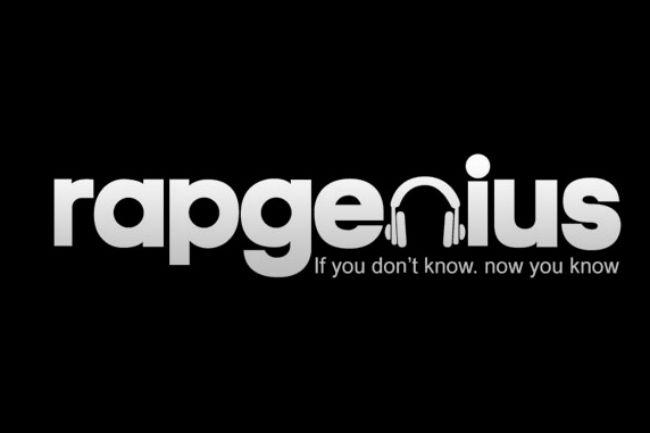
Earlier this week, a music industry lobbying group called the National Music Publishers Association sent notices to a list of 50 websites for republishing song lyrics without licenses. Rap Genius, the popular site for annotating and analyzing rap lyrics, was named the top offender using research by David Lowery, a musician and active crusader for fair pay for artists.
Lowery understands the challenges musicians face making a living from their craft, which is why he vehemently opposes services that he believes shortchange artists, and he has criticized the practice of downloading music illegally, and also takes issue with streaming music services like Spotify for their payment practices. Lowery doesn’t see a distinction between Rap Genius and the other lyrics sites that offer catalogs of verses without paying music labels. Bottom line, annotations or no annotations, Lowery believes that reposting unlicensed lyrics is wrong and does a disservice to the lyric creators. “Why would you support the company that doesn’t fairly compensate songwriters? Would you buy coffee from the company that paid it’s workers unfairly or not at all?” he explains to me.
The creators of Rap Genius disagree that their website hurts rappers because they view it as a “hip hop Wikipedia” — a crowdsourced work of scholarship — but Lowery doesn’t think the annotations and encyclopedic tilt give Rap Genius an excuse to publish song lyrics without licensing them first. “The idea that the annotations make any difference is probably something they heard in college from the Stanford law professor and Google lawyer Mark A Lemley. At least that’s my guess. Not exactly an pro-author’s rights history there.” Lowery continues.
“I’m not against sites like Rap Genius. I’m for them paying artists fairly. Just like the other sites. They raised 15 million in venture funding. It’s not like they are poor,” Lowery said.
And as it turns out, Lowery’s anger against Rap Genius may be unwarranted — the website revealed today that it has a major licensing deal with Sony/ATV Music Publishing, and that it plans to seek more licensing deals in the future. While this doesn’t mean Rap Genius is out of the woods yet (it still hosts songs that aren’t licensed) it does make a shutdown extremely unlikely. NMPA CEO and President David Israelite told Billboard that the goal of the notices was to foster licensing agreements, not shut down websites: “We simply want those that are making money off lyrics to be business partners with the songwriters who created the content that is the basis of the sites.”
And although Rap Genius appeared to be toying with the idea of arguing fair use, it seems the growing service has decided to avoid legal drama and just pay up — something Lowery will likely be pleased to hear.


